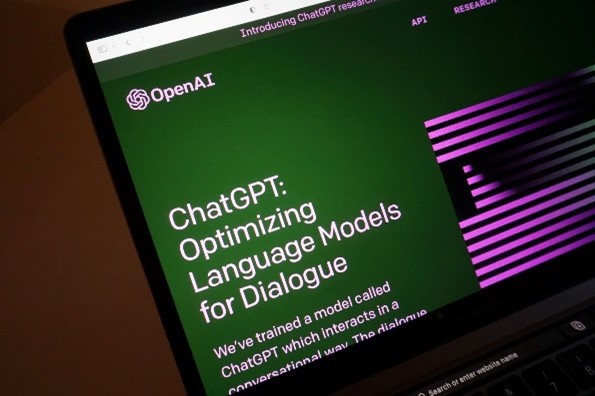From Clippy to ChatGPT: AI Advances in Productivity
Unless you’ve been living in a cave, you’re probably feeling overwhelmed by the steady pace of technology news this year around the use of artificial intelligence (AI) tools and features – with Microsoft very much at the forefront of this news. Microsoft's strategy for AI across Bing search, Microsoft 365, and other tools and platforms is to leverage AI to improve the user experience, increase productivity, and provide better insights.
In search, Microsoft is using AI to improve the relevance and accuracy of search results by incorporating natural language processing (NLP) technology and computer vision into Bing search. Additionally, Microsoft has integrated ChatGPT into Bing through Bing Chat to give users a community-driven platform for asking and answering questions.
In the Microsoft 365 suite – including well-known brands like SharePoint, Microsoft Teams, PowerPoint, Excel, and Word – AI improves productivity and gives users better insights. For example, Microsoft incorporates AI to power features like Ideas in Excel, which gives users suggestions and insights based on their data, and PowerPoint Designer, which helps in creating more compelling slide layouts and designs. AI also powers the Personalized Search and Intelligence (PST) features in Microsoft Teams, for personalized search results, suggested replies, and insights.
Overall, Microsoft's strategy for AI is to create more intuitive, intelligent, and integrated end user experiences within and across applications.
Understanding the Key Points of Integration
Microsoft has integrated OpenAI and ChatGPT into Bing search in a few ways.
First, Microsoft has incorporated OpenAI's NLP technology into Bing's search algorithm to improve the relevance and accuracy of search results. This enables Bing to better understand the intent behind a user's search query and to provide more relevant results based on that understanding.

Second, Microsoft has integrated ChatGPT into Bing through a feature called Chat. Users can leverage natural language to ask simple or complex questions. ChatGPT generates responses, to which the user can ask follow-up questions. The more specific the question, the better Chat understands the intent and can provide more detailed and specific answers. Additionally, Chat delivers common follow-up questions based on similar conversations with other people.
Third, Microsoft has also used OpenAI to improve the quality of Bing's image search results. OpenAI's computer vision technology analyzes and understands the content of images, which helps Bing supply more accurate and relevant image search results.
Fourth, with the announcements surrounding Microsoft Copilot, the company is promoting AI in just about every product and service, to make users more productive in each tool – but also helping users benefit from data and knowledge across each of their tools and workloads.
Overall, Microsoft's integration of OpenAI and ChatGPT into Bing search improves the relevance and accuracy of search results, and gives users innovative ways to interact with the search engine.
Ethical and Responsible AI
With Microsoft’s Bing announcements, one topic that has come to the forefront has been the ethical use of AI. Stories abound of people using ChatGPT and similar AI platforms to create marketing and social media content, generate lifelike images, and even produce workflows, scripts, and code. While some pundits speculate and pontificate on the dangers of AI replacing jobs in the near future, the more immediate concern is not that AI will become self-aware and take over the world, but that bad actors will misuse the technology to skirt ethical guidelines.
Within search and productivity applications specifically, there are several chief ethical concerns about becoming too reliant on AI, including:
- Bias and discrimination: AI systems can amplify and perpetuate existing biases and discrimination in search and productivity applications. This can lead to discriminatory outcomes for certain groups of people.
- Privacy and security: The use of AI in search and productivity applications raises concerns about data privacy and security, as AI systems may collect and analyze large amounts of personal data.
- Transparency and accountability: The lack of transparency and accountability in AI systems can make it difficult to understand how decisions are made and who is responsible for those decisions.
- Job displacement: The use of AI in productivity applications has the potential to displace human jobs, which could lead to economic and social disruption.
- Misuse and abuse: Individuals or organizations can potentially misuse or abuse AI systems for unethical purposes, such as spreading disinformation or committing fraud.
Addressing these ethical concerns requires a concerted effort from both the developers and the users of AI systems. Developers need to design AI systems with ethical considerations in mind. Users need to be aware of the potential risks and take appropriate steps to protect their privacy and security. Additionally, there is a need for clear regulations and standards to ensure that AI is developed and used responsibly and ethically.
For those unfamiliar, Microsoft has published their responsible AI principles, which are a set of guidelines and practices designed to ensure that the development and use of AI technologies are ethical, transparent, and beneficial to society. Addressing all the concerns that I outlined earlier, these principles are centered around six key areas:
- Fairness: Microsoft is committed to ensuring that its AI systems are free from bias and discrimination, and that they treat all individuals fairly and without prejudice.
- Reliability and safety: Microsoft is committed to building AI systems that are reliable, safe, and trustworthy, and that can be relied upon to perform as intended.
- Privacy and security: Microsoft is committed to protecting the privacy and security of user data, and to ensuring that its AI systems are developed and used in a way that is transparent and accountable.
- Inclusiveness: Microsoft is committed to ensuring that its AI systems are inclusive and accessible to all, regardless of factors like race, gender, or socioeconomic status.
- Transparency: Microsoft is committed to providing transparency in its AI systems, including clear explanations of how decisions are made and who is responsible for those decisions.
- Human control: Microsoft is committed to ensuring that humans remain in control of AI systems, and that they are used to augment human capabilities, rather than replace them.
Overall, Microsoft's responsible AI principles reflect the company's commitment to developing and using AI technologies in a way that is ethical, transparent, and beneficial to society. By following these principles, Microsoft aims to build trust in AI technologies and to ensure that they make a positive impact on the world.
Is Bing becoming Clippy 2.0?
The other major question that the community is asking is whether Bing with ChatGPT integration is, simply put, the new “Clippy.” Clippy was a cartoonish, animated character that appeared in early versions of Microsoft Office, offering users unsolicited advice and assistance in the form of pop-up messages. Clippy was widely criticized for being annoying and intrusive, and was eventually removed from Microsoft Office in 2007.

The new Bing search with ChatGPT integration is different from Clippy in several key ways:
The ChatGPT integration in Bing search is designed to be a more subtle and useful tool for users. Rather than being an animated character that pops up uninvited, ChatGPT is integrated into the search engine itself, allowing users to ask natural language questions and receive intelligent, contextually appropriate answers.
ChatGPT is based on OpenAI's state-of-the-art natural language processing technology, which enables it to understand and respond to a wide range of complex queries. This means that users can ask questions in their own words and receive relevant and accurate answers, rather than being limited to a pre-defined set of responses.
While Clippy was a well-intentioned but ultimately unsuccessful attempt to help users, the new Bing search with ChatGPT integration represents a more advanced and useful tool that integrates state-of-the-art AI technology to give users intelligent, contextually appropriate answers to their questions.
Where Do We Go From Here?
While I am not giving up on the dream of a ChatGPT-powered Clippy UX, clearly the future of AI in the modern workplace and productivity solutions will be significant, as AI technologies can transform how we work and increase productivity.
How will AI transform productivity? Here are some ideas:
- Automating routine tasks: AI technologies can automate routine tasks such as data entry, scheduling, and document processing, freeing up employees to focus on higher-level work.
- Augmenting human decision-making: AI can offer insights and recommendations to help humans make better decisions. For example, AI-powered analytics can help identify patterns and trends in data that may not be immediately apparent to humans.
- Enhancing collaboration: AI technologies can enhance collaboration and communication by providing real-time translation, intelligent search, and NLP capabilities.
- Personalizing productivity solutions: AI can personalize productivity solutions based on the individual user's work patterns, preferences, and needs, resulting in increased efficiency and effectiveness.
- Creating new forms of work: AI technologies can create new forms of work, such as training, supervising, and optimizing AI systems, which will require new skill sets and job roles.
- Improving work-life balance and job satisfaction: Because AI can automate mundane and repetitive tasks, employees can save time and focus on more fulfilling and engaging work, resulting in better work-life balance.
Overall, the future of AI in the modern workplace and productivity solutions is likely to be characterized by increased automation, augmented decision-making, enhanced collaboration, and personalized solutions. As AI technologies continue to advance, it is expected that they will become even more integrated into the way we work, enabling new forms of work and transforming the workplace into a more efficient, productive, and fulfilling environment.
Possibly with a new Clippy interface.


